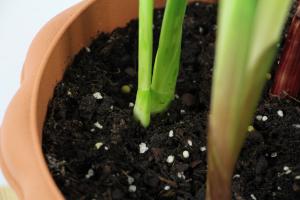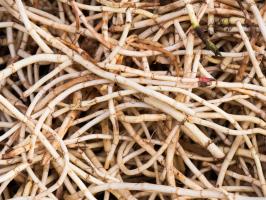What Is the Best Fertilizer for Pot Plants?
When it comes to growing pot plants, there are a lot of different factors that can contribute to their success or failure. One of the most important of these factors is the type of fertilizer used. Fertilizer provides the essential nutrients that plants need to thrive, but with so many different types available, it can be difficult to know which one is the best. In this article, we will explore the different types of fertilizer available and help you determine which one is right for your pot plants.
Understanding Fertilizer
Fertilizer is a substance that is added to soil or other growing media to help plants grow. The three main nutrients that most fertilizers provide are nitrogen, phosphorus, and potassium, also known as NPK. These nutrients are essential for plant growth, and they each play a unique role in the development of healthy, strong plants.
Nitrogen is important for leafy growth, while phosphorus helps with root growth and flower development. Potassium also helps with flowering and fruiting, but it also helps with overall plant health and disease resistance. Different plants have different nutrient requirements, so it is important to choose a fertilizer that is tailored to your specific pot plants.
The Different Types of Fertilizer
There are three main types of fertilizer: synthetic, organic, and slow-release. Synthetic fertilizers are made from chemical compounds and are usually cheaper and faster-acting than other types. However, they can also be harsh on the environment and may contain high levels of salt, which can damage plants if used improperly.
Organic fertilizers, on the other hand, are made from natural materials such as compost, animal manure, and bone meal. These types of fertilizers are generally more expensive than synthetic fertilizers, but they are also more sustainable and environmentally friendly. They can also improve soil structure and help retain moisture, which can be beneficial for pot plants.
Finally, slow-release fertilizers are a type of synthetic or organic fertilizer that releases nutrients over a longer period of time. They are often more expensive than other types, but they can be convenient for busy gardeners who don't have time to fertilize their plants frequently. They can also be helpful for plants that require a steady supply of nutrients over a longer period of time.
Choosing the Best Fertilizer for Your Pot Plants
When choosing a fertilizer for your pot plants, there are a few key factors to consider. First, consider the type of plant you are growing and its specific nutrient needs. This will help you choose a fertilizer with the appropriate NPK ratio.
Next, consider the type of fertilizer you want to use. If you are looking for a more sustainable and environmentally-friendly option, organic fertilizers may be a better choice. However, if you want a fertilizer that is fast-acting and readily available, synthetic fertilizers may be a better option.
Finally, consider the timing and frequency of your fertilization. Most pot plants require fertilization every 4-6 weeks, but this can vary depending on the type of plant and the type of fertilizer used. Be sure to follow the instructions on the fertilizer package to ensure that you are applying it correctly and at the right time.
Conclusion
In conclusion, choosing the best fertilizer for your pot plants can be a daunting task, but by considering the type of plant, the type of fertilizer, and the timing and frequency of fertilization, you can make an informed decision that will help your plants thrive. Whether you choose synthetic, organic, or slow-release fertilizer, providing your pot plants with the nutrients they need is key to their success.

 how many times do yo...
how many times do yo... how many planted tre...
how many planted tre... how many pine trees ...
how many pine trees ... how many pecan trees...
how many pecan trees... how many plants comp...
how many plants comp... how many plants can ...
how many plants can ... how many plants and ...
how many plants and ... how many pepper plan...
how many pepper plan...

































